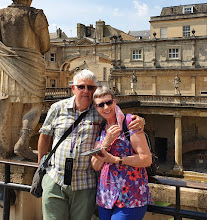I realise that I speak from a position of white privilege but some of the BLM protestors seem to be throwing the baby out with the bathwater. Someone like Colston, a slave trader, has no place in being honoured in any way. Yes slave trading was legal at that time, but it resulted in many men and women dying in appalling circumstances at sea and thrown overboard. These are crimes against humanity,. Whether the statue should have been removed in the manner that it was is debatable, but it should have been removed many years ago. But other people that they are protesting about, Robert Peel is one example did nothing wrong to the best of my knowledge. Peel's "crime" is that his father delayed an anti-slavery bill. To the best of my knowledge that was nothing to do with Robert Peel, yet he is being vilified.
Henry Tate is coming in for some stick and there are some calls for the Tate Gallery to be renamed. Yet Henry Tate was not born until 1819, the slave trade was abolished in England in 1807. He started out as a grocer and eventually sold up and bought into a sugar refinery in 1859, slavery in the West Indies was abolished in 1833. So although he was involved with sugar refining it was not until 25 years or so after slavery was illegal. So this is why I believe that some people think that too much fuss is being over statues, particularly when there are40 million plus in forms of modern slavery. An Indian friend of mind has pointed out to me, rather wryly, that three of the worst offenders, India, Pakistan and Bangladesh once formed part of the British Empire.
When we move to times closer to home the picture becomes murkier. Sadiq Khan a couple of years ago unveiled a statue of Millicent Fawcett the suffragette; yet judged by modern standards she was racist - should her statue come down? The are others such as Baden-Powell who are also being pilloried, I do not know enough about him to make any sort of comment but I think that you catch my drift. Slaver traders of any sort should not have any sort of honour, but some of the others that are being vilified biggest crime is being born when they were. A lot of the English upper class treated the "lower orders' of any colour , white. black, blue etc appallingly, it was the way they were brought up. It is not right and hopefully things have improved although to hear some politicians speak they are by no means perfect.









